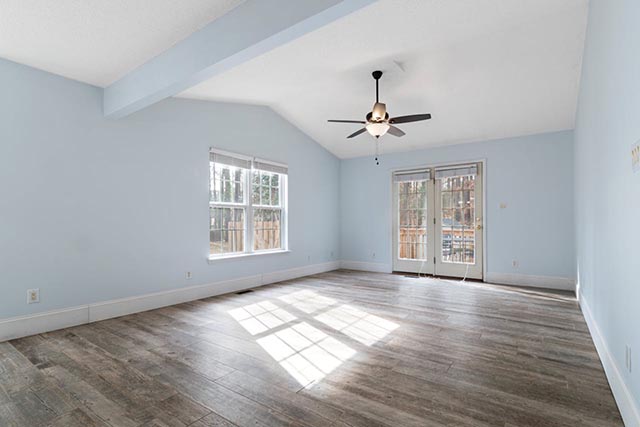Key Takeaways
Property management fees can vary, so it’s worth knowing exactly what services are included.
Monthly management is just one part; setup, leasing, and maintenance fees may also apply.
Understanding how repairs, inspections, and evictions are handled helps you budget with confidence.
A professional team like Cardinal Point Property Management helps you stay organized, compliant, and focused on your goals.
For rental property owners, working with a property management company can be a smart move. But before handing over the keys, it’s essential to understand what you’re paying for and how much you’ll pay.
At Cardinal Point Property Management, we believe transparency is key when it comes to costs. Property management fees vary widely depending on your location, the type of rental property, and the scope of services provided.
Let’s take a closer look at typical property management costs and what landlords should expect to budget for.
Understanding Property Management Fees
Most property management companies charge a monthly fee to manage your rental. This fee is often a percentage of the monthly rent collected. However, it's not the only cost involved.
There are also other fees that may be charged upfront, during tenancy, or after a resident moves out. Knowing what these fees are can help you prepare financially and avoid surprises.
The most common type of fee is the management fee, typically charged monthly. This covers the day-to-day operations of your rental, such as responding to maintenance requests, collecting rent, and communicating with residents.
While the percentage can vary depending on the market and the company, it often ranges from 8% to 12% of the monthly rent.

Initial Setup or Onboarding Fees
Many property managers charge an onboarding or setup fee at the beginning of a new contract.
This fee usually covers administrative tasks like opening a new owner account, setting up your property in the company’s system, creating financial records, and doing an initial inspection.
Some companies waive this fee as part of a promotional offer, but others charge a fixed amount. While this is a one-time fee, it’s worth asking what exactly is included.
Some companies may also use this time to coordinate needed repairs or get your unit rent-ready, which can add to the cost.
Leasing Fees
When your property is vacant, the management company typically handles marketing, showing, and screening applicants. This process often comes with a leasing or placement fee.
The cost of this service can vary. Some companies charge a flat fee, while others take a percentage of the first month’s rent. Either way, this fee covers the time and resources needed to secure a qualified resident.
It’s important to clarify if the leasing fee includes services like professional photography, online listings, resident screenings, lease drafting, and move-in inspections.
If these are billed separately, the total cost may be higher than anticipated.

Lease Renewal Fees
When a resident decides to renew their lease, property managers may charge a lease renewal fee. This usually covers tasks like checking current market rent, preparing the updated lease, and going over the terms with the resident.
Some companies skip this fee or include it in the monthly management cost, but others charge a flat or percentage-based fee.
Although it may seem like a minor task, lease renewals require time and expertise to ensure that your rental income stays aligned with current market rates.
Maintenance Fees and Repair Markups
Maintenance coordination is one of the most valued services in property management.
Most companies handle requests from residents, schedule service providers, and oversee the work. However, some also add a markup to the cost of repairs and maintenance.
It’s essential to understand how your property manager handles maintenance billing.
Do they charge a flat coordination fee per repair? Is there a percentage markup on vendor invoices? Are there limits on how much they can authorize without your approval?
Getting answers to these questions can help you estimate ongoing expenses and prevent budget issues.
Vacancy Fees
Not all property management companies charge this, but some may include a vacancy fee during periods when the rental unit is empty.
This fee helps cover inspections, marketing, and general upkeep while the property is unoccupied. Since you’re not collecting rent during this time, it’s important to factor this into your budget.

Vacancy fees may also apply if a property manager needs to visit the unit for showings or conduct weekly checks to ensure the home is secure and ready for new residents to move in.
Eviction Fees
Evictions are unfortunate, but they can happen. If your resident fails to pay rent or violates the lease, your property manager may need to initiate the eviction process.
Eviction services typically come with additional fees, especially if legal documents need to be filed or if court representation is required.
Some companies offer an eviction protection plan for an additional monthly fee. This service can cover part or all of the legal costs associated with an eviction.
Depending on your investment rental’s location, this protection might be worth considering, especially if you’re managing multiple properties or units in higher vacancy areas.
Property Inspection Fees
Routine property inspections are essential to identify issues early and ensure residents are complying with lease terms. Some companies offer inspections as part of their monthly service, while others charge separately.
Move-in, move-out, and annual inspections may come with individual fees. These inspections help preserve the property’s value and minimize long-term repair costs.

Reserve Fund Requirements
Most property management agreements require property owners to maintain a reserve fund, usually a few hundred dollars, which the manager can use for emergency or routine expenses.
This is not a fee per se, but it does tie up some of your working capital and should be considered when budgeting.
The fund ensures that small repairs or vendor payments can be processed quickly without needing to wait for owner approval or funds transfer.
Custom or à la Carte Services
Some property managers offer optional services such as accounting reports, online portals, insurance coordination, or investment consultations. These may be included in the base fee or priced separately.
Always ask for a detailed list of services and what is included so you can compare costs and avoid unnecessary charges.
If your needs are minimal, you can negotiate a pared-down package. On the other hand, if you want more hands-on management or strategic help with scaling your portfolio, you might pay more for premium services.
Working With a Professional Property Management Company
Hiring a property management company like Cardinal Point Property Management takes a lot off your plate and gives you helpful support along the way.
You’ll also benefit from their experience, knowledge of local laws, and connections to trusted vendors.

When working with a professional company, you get:
Better resident screening and placement processes.
Faster response to maintenance issues.
Legal compliance with housing regulations.
Reduced vacancy periods.
More consistent cash flow.
Detailed financial reporting.
Peace of mind if you live out of state or own multiple properties.
A good property manager becomes your partner in growing your rental business, helping you focus on the bigger picture while they handle the details.
While there are fees involved, the long-term benefits often outweigh the costs, especially if the company prevents just one costly mistake, such as a fair housing violation or poorly handled eviction.
Final Thoughts
Property management costs can feel overwhelming at first glance, but with a clear understanding of what each fee covers, you’ll be better equipped to budget wisely and choose the right company for your rental.
Instead of focusing solely on the percentage you’ll pay, consider the value you’re receiving in return.
Ultimately, working with a professional property management company like Cardinal Point Property Management gives you the freedom to treat your rental property like a true investment.
As with any business expense, review contracts carefully, ask detailed questions, and evaluate the scope of services included.
Contact Cardinal Point Property Management to learn more.


